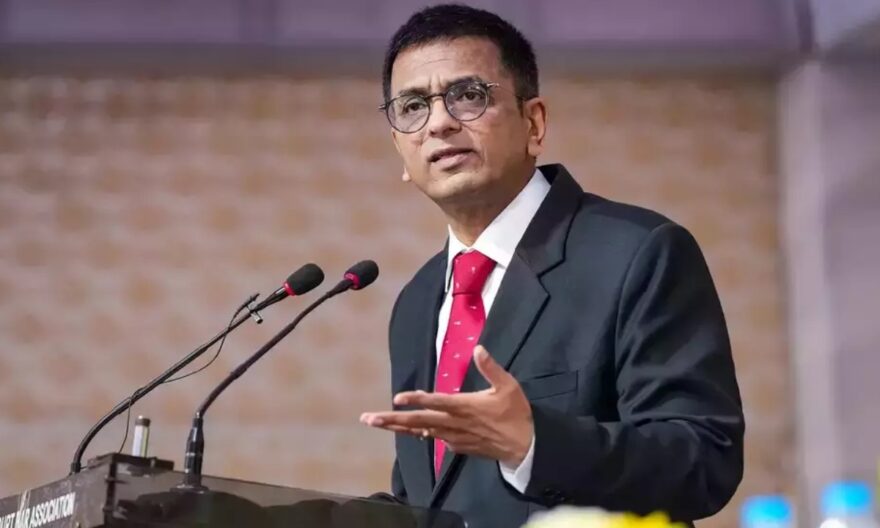
Chief Justice of India DY Chandrachud on Saturday made an appreciative note of how individuals from diverse backgrounds cooperated to pass the Women’s Reservation Bill in the parliament, and likened it to the similar effort made 7 decades ago which culminated in the drafting of the Indian Constitution.
The CJI was speaking at the inaugural session of an international lawyer’s conference hosted by the Bar Council of India, which also saw the presence of Prime Minister Narendra Modi.
The passage of the Women’s Reservation Bill, enables the reservation of 33% of Parliament seats for women, was a common theme in many of the addresses made by the speakers at the inauguration.
CJI Chandrachud stated, “Individuals from different regions of India, diverse backgrounds and even conflicting ideologies came together to draft the Constitution in one voice. We find the same bipartisan effort and this is something to which we as citizens of India must be proud has gone into the passing of Women’s reservation bill in the Parliament.”
The Chief Justice highlighted that the judiciary and the government are also working together, in a spirit of collaboration, to find solutions to various problems.
To illustrate, he referred to a pending Constitution bench case before the Supreme Court on whether a person holding a licence to drive a light motor vehicle can drive a commercial vehicle.
He commented, “Instead of viewing the case as an adversarial challenge, the Court and the government are collaborating to protect the livelihood of millions of drivers across the country. We present disparate institutions and our Constitutional structure may place us in different ends of the table, but our ultimate aim is the same – for our nation to progress and prosper.”
Furthermore, he spoke of how the Supreme Court’s e-committee is working in collaboration with other forms of governmental institutions.
In this regard, he informed the gathering that following a meeting last week, the Union Cabinet chaired by Prime Minister Modi has given approval for Phase 3 of the e-courts project with a financial outlay of over ₹ 7,000 crores.
CJI Chandrachud stated, he also briefly touched upon the debate surrounding the Supreme Court being a polyvocal court. There are often a variety of viewpoints and differences between judges of the Supreme Court.
He added, “But that is why we are a national court. However, as the day comes to a close, we come together and share moments of camaraderie. This idea of friendship beyond differences may seem light hearted. However, it plays a pivotal role in fostering mutual respect for each other’s perspectives and acknowledges that there is always something to learn from each other. Only when we recognise the shared intention to deliver justice, can we sit on the same table and find solutions.”
On a parting note, the CJI urged lawyers to become more global in their outlook, in the spirit of the international lawyer’s conference being kickstarted.
He stated, “It is time for our lawyers to reach across the world in a global landscape, We cannot look at ourselves as domestic practitioners… we must look at the global platform. While we don’t have a magic wand to wish away challenges to justice delivery. I am sure we will find innovative solutions to the same over this two-day conference.”
Union Minister of State for Law Arjun Ram Meghwal, Attorney General for India R Venkataramani and Solicitor General of Tushar Mehta also spoke at the inaugural session.




